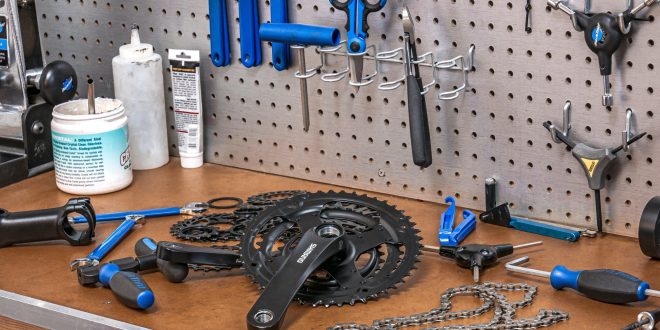Should employers in the bike trade publish their salaries alongside job ads? Alex Ballinger explores the impact pay transparency could have on the industry
This piece first appeared in the June edition of BikeBiz magazine – get your free subscription here
“I regularly check the BikeBiz jobs board to keep up to date with opportunities within the industry, but many adverts don’t post the salary,” said George Wallis, an Edinburgh-based bike mechanic. “Occasionally I will email interesting employers to see what they are offering, and will have to make an application to the position and have to go through the entire process just to find out what pay they are offering.”
Salary transparency is often non-existent across many trades in the UK, as employers prove reluctant to share their pay structures with the wider world. In recent years the debate around pay has been gaining traction, with employees increasingly demanding more information about salary before applying for jobs, in part in response to the gender pay gap, and partially sparked by debate on social media.
In the UK, employers must pay the National Minimum Wage (up to £9.18 depending on the employee’s age) to any workers over the age of 22, and then the higher National Living Wage for any employees over 23 – £9.50 in most of the country, or £11.05 in London.According to the Government’s National Careers Service, mechanics in the UK can expect to earn between £20,000 and £30,000, while some employers may offer as little as £14,000 to their workshop staff.
But what impact would greater salary transparency have on the bike trade?
Gav Hudson, owner of the independent store Butternut Bikes in Crouch End, North London, is one cycle industry retailer who is passionate about fair pay. “Not only do we list our salaries, we also believe in paying fairly,” said Hudson. “If we can’t pay an experienced and hardworking mechanic £30,000 per year, then we don’t deserve to be in business. It might come to this, but I would rather close the business than take advantage of cheap labour to make money for me (little chance of that!) and others in the supply chain.”
Hudson, a former mechanic himself, said his pay philosophy is inspired by roles he previously held in the industry – while working for a London-based chain, Hudson was told he was the highest paid non-managerial member of staff for the company while he was on the living wage (around £11 per hour). In his first two hours on the job, Hudson built up an £8,000 full suspension e-bike, securing around £2,000 in profit for the company. Hudson said he eventually decided to leave and set up his own bike shop, rather than continue feeling undervalued by his employer.
So why should employers consider publishing their staff salaries? In theory, transparency around pay is likely to drive up salaries in the industry, and could spark animosity between staff on varying levels of pay.
“Would you expect to sell a bike without a price on it?” said Hudson. “So why would you expect people to apply for a job without a salary advertised? We all know the reason why companies don’t do it – the salaries that they offer are frankly, laughable, and they don’t want stakeholders (internal or external) to know that much of the cycling industry is run on the goodwill and enthusiasm of those involved, to the benefit of the wider population and company shareholders.
“A good reason for companies to publish salaries is that it shows up front that companies are transparent organisations, who value employees, and don’t want to waste the time of applicants. I personally would never apply for a role that tried to play the old salesman trick of trying to sell something to me before letting me know the price.”
Sean Lally, director of Cycle Systems Ltd, which offers bike maintenance training, is also passionate about improving the pay in workshops. “In general, many highly skilled, motivated and gifted individuals leave the bike trade due to low wages and poor prospects,” he said. “Higher salaries, especially for highly skilled workers, is essential to retain these people. Without them, we are doomed to repeat the poor service that the bike trade has been infamous for over many years.”
Lally added: “When we see ‘competitive’ or ‘dependent on experience’, what we read is ‘as low as we can get away with’. If any employer is happy to publish their position’s salary, it shows they are serious about attracting quality candidates.”
BikeBiz has its own thriving online jobs board with more than 80 paid-for job listings being uploaded each month, with prices for employers starting from £99. While BikeBiz does offer employers the opportunity to list their salaries with their ads, we find the vast majority opt not to publish wages to potential employees.
But we are conscious of our role in influencing employers to be more transparent with their salaries, by encouraging them to publish their pay rates. It was the BikeBiz jobs board that inspired George Wallis to reach out with his thoughts on industry salaries, sparking the idea for this article.
He said: “[Publishing salaries] would help illustrate to others that there is a struggle within the industry to pay mechanics a decent wage in the wake of a living cost crisis. Mechanics do the hard day-to-day tasks, are highly skilled workers and becoming more and more scarce after being priced out of the industry. There is less incentive to stay in the industry when there is such a financial struggle, one that managers and CEOs can’t seem to understand.”
After fearing he may be priced out of the industry himself, Wallis has found a new role as a senior mechanic for an e-bike store, offering a relatively strong salary at £27,000. But he said he hopes traditional bike shops consider addressing their salaries, and in turn the industry will benefit: “If a store is proud of their employees and pays above average wage, advertising as such may help stores struggling to find staff reconsider what they are offering.”
Here at BikeBiz, we have found from analysing the number of views a role gets that job ads with salaries included tend to receive a higher number of applicants. If a company is able to offer an attractive salary on their adverts, these roles are often filled more quickly. We at BikeBiz believe that jobs offering attractive salaries will help increase the amount of quality mechanics in the trade and will in turn benefit both staff and employers, across the whole industry.
BikeBiz is taking this opportunity to commit to urging employers to list their salaries when posting job ads, and will highlight the benefits publishing salary information will have for both businesses and employees.
 BikeBiz Bicycle and cycling retail news
BikeBiz Bicycle and cycling retail news




